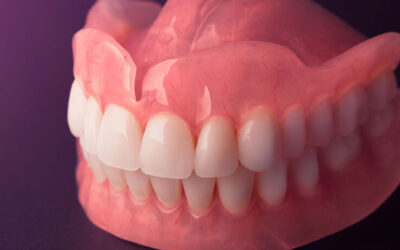Dental implants are a reliable and successful method for replacing broken or missing teeth. Not only do they offer a sturdy foundation for replacement teeth, but they also safeguard the adjacent gums and teeth from more destruction, future tooth loss, and gum recession. To better understand how dental implants prevent such issues, we will further explore their advantages over other solutions and uncover what factors influence optimal oral health.
Understanding Tooth Loss and Gum Recession
Poor oral hygiene, gum disease, trauma, age-related wear-and-tear, teeth grinding or clenching, and various medical conditions can all contribute to the ravaging effects of tooth loss and gum recession. Through these issues problematic for many individuals, an insidious process takes place; slowly eroding away the bone supporting your teeth until it is ultimately lost – resulting in unfortunate tooth loss and unsightly receding gums.
If left untreated, the repercussions of this can be far-reaching, eroding adjacent teeth and impacting your self-esteem due to aesthetic concerns. Therefore, it is paramount to act urgently to avoid tooth loss or gum recession.
The Basics of Dental Implants
Dental implants are artificial tooth roots surgically inserted into the jawbone to provide a secure foundation for replacement teeth. They consist of titanium screws that integrate with the jawbone and support an artificial tooth crown or bridge, restoring aesthetics and functionality.
Dental implants provide greater stability, comfort, and durability than other options, such as dentures or bridges. They also help preserve the adjacent teeth by preventing them from shifting into the space of missing teeth.
How Dental Implants Prevent Further Tooth Loss and Gum Recession
Dental implants offer an appealing, purposeful alternative for decayed or missing teeth and help sustain the existing bone structure in your jaw. The titanium screws to secure dental implants stimulate the underlying jawbone, preserving its shape and density. At the same time, regular chew-and-gnaw motions produce new bone cells, thereby slowing any further loss of mass.
Dental implants help preserve the adjacent teeth and gums by providing a strong foundation for replacement teeth and preventing them from shifting into the space of missing teeth. This helps to reduce the risk of further tooth loss or gum recession due to additional pressure on surrounding teeth.
Studies have shown that dental implants provide greater stability, comfort, and durability than other options for replacing missing teeth. A study published in the Journal of Oral Implantology found that implant-supported replacement teeth had a 94% success rate after 10 years, compared to 93% for bridge-supported replacements. Additionally, research from the International Association for Dental Research found that implant-supported crowns and bridges were more effective than removable dentures in preserving the adjacent teeth from shifting.
Other Factors to Consider
To protect against possible tooth loss and gum recession, it is critical to pick the correct dental replacement option and practice good oral hygiene routinely. Keeping your teeth free from plaque buildup by brushing and flossing regularly can help preserve strong teeth and gums; further, frequent visits with a dentist will enable them to recognize issues early on before they become more severe.
Not only does smoking cause discoloration of the teeth and bad breath, but is also a risk factor for cavities and gum disease. Additionally, research has shown that smoking results in bone loss around the jawbone, leading to tooth deterioration and receding gums. Therefore, individuals should be aware that lifestyle choices such as tobacco consumption may have long-term effects on oral health.
Similarly, poor diet and nutrition can also have a negative effect on oral health. Eating many sugary or acidic foods and beverages can increase the risk of tooth decay. Not getting enough vitamins and minerals like calcium can contribute to weak and brittle teeth. Inadequate nutrition can also lead to gum recession due to the weakened tissue in the mouth.
By making healthy lifestyle choices, practicing good oral hygiene, and getting regular dental checkups, you can help prevent further tooth loss and gum recession. Additionally, choosing a solution such as dental implants can provide a secure foundation and help stimulate the jawbone, reducing the risk of further tooth loss or gum recession.
Conclusion
Dental implants are ideal for those looking to replace missing or damaged teeth, as they create a stable foundation for replacement teeth and support jawbone growth. It is also important to remember that in addition to selecting the proper tooth replacement method, good oral hygiene and regular dental visits are critical components of optimal oral health. With this combination, you can ensure your smile looks great while keeping your mouth healthy!
Before committing to dental implants, it is essential that you speak with a dentist and decide if they are the right choice for your needs. With proper care, these implants can be an excellent way to maintain a healthy and attractive smile long-term!




